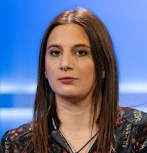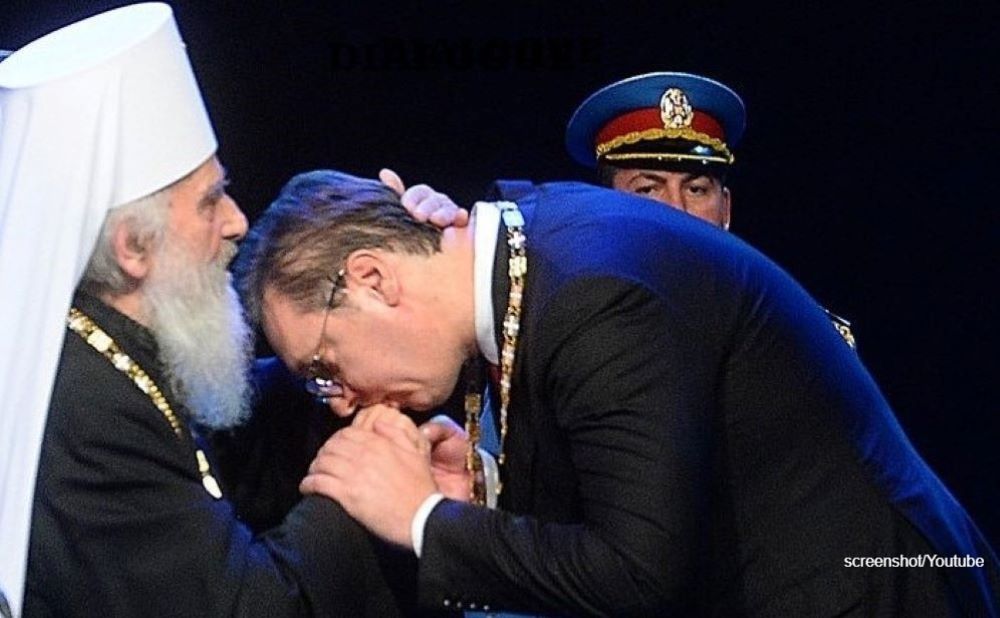It seems that the church hierarchy, embodied in somewhat younger bishops who understand how the world and society function today and led by the patriarch, knows what it wants – an escape from the political arena, support and cooperation with the authorities, but far from the Byzantine model of the symphony. However, given the relations so far, the path to that can hardly be simple and straightforward.

Jelena Jorgacevic
Historically, the Serbian Orthodox Church (SOC) – state relationship could have been characterized, until World War II, as the Church’s ultimate subordination to the state, with a few turbulent moments; then follows the regime’s open hostility towards religious communities during communism, with nuances depending on the republic, geo-political and personal relations; finally, from the 1990s until today, there has been ignorance and cooperation within this relationship, mutual agreement and criticism, as well as excessive praise and abuse of their positions.
One thing is certain – there is a tradition of state interference in the affairs of the Church, and the most obvious example are the patriarch elections over the last hundred years. So, in fact, respect and implementation of clear principles of a secular state would actually be most beneficial for the Serbian Orthdoox Church and some of the leading people of the Church today understand that. But, the issues of various privileges that the Serbian Orthodox Church has are brought up in these conversations, which again should not lead to the conclusion that the Church should be limited to the churchyard and excluded from the public sphere.
Former patriarch Irinej pointed out that this relationship has never been as good as it was at the time when he was in office, and Aleksandar Vučić was the head of state. Compliments to the state leadership have only kept coming, and few people would forget the speech at the awarding of the Order of Saint Sava of the first degree to President Vučić. On the other hand, several bishops sharply criticized the same government from different angles, so the Bishop of Zahumlje-Herzegovina Grigorije and the former Metropolitan Amfilohije suffered scrutiny by the pro-regime tabloids and the parliamentary majority.
In his sermon at the enthronement (February 19, 2021), Patriarch Porphyry said, among other things, that he would not follow the paths of partial interests nor would his actions ‘contain elements of modern partisanship and party politics’, but would take care or share responsibility for the good of society. In a later interview with the Croatian Vecernji List, he pointed out that the closer the relations between the Church and the state, as well as its leading people, the better for everyone, but adding that these relations must be based on ‘democratic procedures, and full respect for everyone’s freedom’.
When the line is drawn after the first six months of his rule, patriarch Porphyry cultivates very agreeable relations with the state and the man who holds all the levers of power in Serbia. All that was expected, and it is certain that the patriarch will behave equally with each subsequent president.
However, there are no excessive words of praise, the announcements after the meetings with the representatives of the authorities are brief and do not attract too much attention; photos from official meetings exude a certain distance.
It seems that the church hierarchy, embodied in somewhat younger bishops who understand how the world and society function today and led by the patriarch, knows what it wants – an escape from the political arena, support and cooperation with the authorities, but far from the Byzantine model of the symphony.
However, given the historical burden and the relations built so far, the local intertwining of the religious and the national which is susceptible to abuse, the great financial support that the Church enjoys, the persistent and more or less successful attempts of the authorities to instrumentalise each actor and institution in the public space, this path can hardly be simple and straightforward.
Jelena Jorgacevic, Journalist in Vreme (Time) weekly journal



Leave A Comment